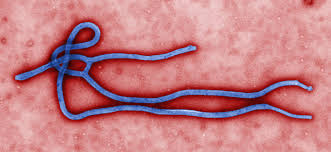
Eight people in Scotland have been tested for Ebola since the establishment of facilities in December.
The labratory at Edinburgh Royal Infirmary is being used to speed up the process of discovering whether patients have contracted the deadly disease.
The Scottish Government asked NHS Lothian to use the facility to test for four Viral Haemorrhagic Fevers.
It now takes six hours for a diagnosis, where previously samples had to be sent to Wiltshire in England for verification - which took significantly longer.
Ministers say it was important for Scotland to have its own testing facility once the scale of the Ebola outbreak became known,
Only Pauline Cafferky, from Crossgates, has tested positive at the centre. She remains in a critical but stable condition at a specialist unit in London after being diagnosed on December 29.
Another suspected case originating from Auchtermuchty proved to be a false alarm last week.
Public Health Minister Maureen Watt says the specialist centre in Edinburgh is speeding up testing times.
Health workers and other returning personnel who have had contact with Ebola patients are screened on return to airports in London, Birmingham and Manchester as well as St Pancras station. Depending on their level of risk they are then asked to monitor their temperature on a daily basis for 21 days, and to report the temperature to local health protection teams. If they report a raised temperature, or other symptoms, they may be brought to one of Scotland’s three regional isolation units and a blood sample sent to Edinburgh for testing.
Maureen Watt, Minister for Public Health, said:
“Scotland is well prepared to cope with any suspected Ebola cases, and the establishment of this facility is just part of that preparation. Once the scale of the west African Ebola outbreak became known, we felt it was important for Scotland to have its own testing facility so we could deliver quicker results and reduce the time that patients have to wait.
“The vast majority of tests are carried out on a precautionary basis, as the number of negative tests shows. The risk to Scotland from Ebola remains very low. It can only be transmitted through contact with an infected person’s body fluids. However, that doesn’t mean that it isn’t an anxious experience for patients, so it’s valuable to be able to turn around the results in a shorter time span.
“Of course, our thoughts remain with Pauline Cafferkey, who continues her treatment at the Royal Free in London. There are many brave men and women who have travelled from Scotland to help tackle Ebola in western Africa. The best way of preventing the spread of this disease is to bring it under control in the affected countries, so we all owe them a debt of thanks for their courageous actions.”


 Man, 44, seriously injured in hospital after crash between Comrie and Rosyth
Man, 44, seriously injured in hospital after crash between Comrie and Rosyth
 John Swinney announces SNP leadership bid
John Swinney announces SNP leadership bid
 Closures on A92 from TONIGHT for roadworks
Closures on A92 from TONIGHT for roadworks
 14°C
14°C
 12°C
12°C
 16°C
16°C